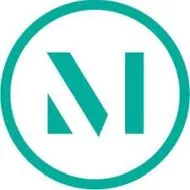Addressing a dispute over ownership of a service mark between a departing member of a group and the remaining group members, the US Court of Appeals for the Federal Circuit upheld the Trademark Trial and Appeal Board's (TTAB's) cancellation of the departing member's registration after finding that the application underlying registration was void ab initio. Lyons v. The American College of Veterinary Sports Medicine and Rehabilitation, Case No. 16-2055 (Fed. Cir., June 8, 2017) (Lourie, J).
Between 1999 and 2004, Sheila Lyons was involved in the creation of a veterinary specialist organization (VSO) for the treatment of athletic animals. In 2004, Lyons was dismissed from the organization. Shortly thereafter, Lyons applied to register the mark at issue, THE AMERICAN COLLEGE OF VETERINARY SPORTS MEDICINE AND REHABILITATION, for "veterinary education services namely conducting classes, seminars, clinical seminars, conferences, workshops and internships and externships in veterinary sports medicine and veterinary rehabilitation." Claiming first use anywhere as of December 20, 1995, and first use in commerce at least as early as June 18, 1996, Lyons registered the mark on the Supplemental Register in May 2006.
Despite Lyons's departure, the VSO had continued to seek accreditation from the American Veterinary Medical Association (AVMA). In 2010, the AVMA granted "the American College of Veterinary Sports Medicine and Rehabilitation" provisional recognition. In 2011 the College petitioned to cancel Lyons's registration on the grounds of priority of use, likelihood of confusion, misrepresentation of source, and fraud. The cancellation proceeding was suspended for almost three years while district court litigation between the parties was resolved. The district court ultimately dismissed Lyons's trademark infringement claims and ordered the US Patent and Trademark Office to dismiss her application. The district court declined, however, to cancel Lyons's existing registration. The TTAB then resumed the cancellation proceeding, ultimately concluding that Lyons did not own the mark at issue and that therefore the underlying application for her registration was void ab initio. Lyons appealed.
The Federal Circuit agreed with the TTAB's legal framework for determining ownership of a mark in a situation where there has been a departure from or change in membership in a group (where there is no contract governing ownership of the mark) and both the departing member and the remaining group members claim ownership of that mark. The Court stated:
Although various sources delineate the relevant test using different language, they all substantively include three main factors to be considered in ownership disputes surrounding service marks as between a departing member and the remnant group: (1) the parties' objective intentions or expectations; (2) who the public associates with the mark; and (3) to whom the public looks to stand behind the quality of the goods or services offered under the mark.
The Federal Circuit found that substantial evidence supported the TTAB's findings for all three factors. Regarding the first factor, the Court stated that the parties' objective expectations were that Lyons, with the group, would form a VSO that would operate under the name "the American College of Veterinary Sports Medicine and Rehabilitation," despite what Lyons's subjective intentions might have been.
Second, the Court determined that the AVMA and veterinary community associated the mark with the College because Lyons's use, which, at least prior to 2003, was limited to a single written work discussing Lyons's future plans to form a VSO, never "created an association in the minds of the purchasing public between Lyons and the Mark."
Finally, the Court found that the relevant public looks to the College for quality control because of its AVMA accreditation, whereas Lyons produced no evidence that she had obtained an AVMA certification, enrolled students in educational services or offered any certification programs. The Court surmised that "[a]lthough Lyons may have been the first to use the mark, the record shows that her use never rose to the level of use in commerce."
Paws Off: Remaining Members of a Group Own Their Mark
The content of this article is intended to provide a general guide to the subject matter. Specialist advice should be sought about your specific circumstances.
[View Source]

